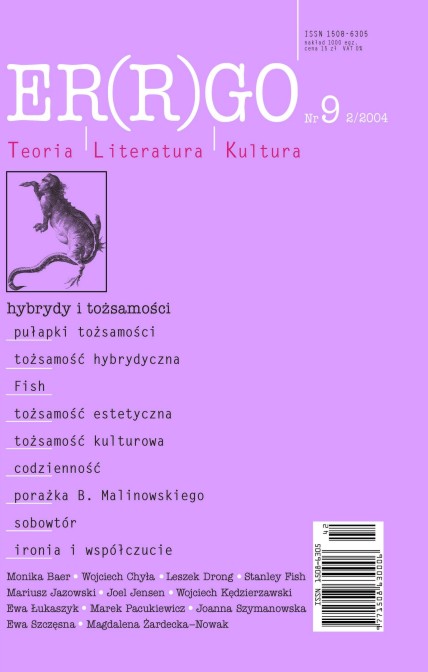Ironia – tożsamość kulturowa – współczucie
Irony – Cultural Identity – Compassion
Author(s): Magdalena Żardecka-NowakSubject(s): Literary Texts
Published by: Wydawnictwo Uniwersytetu Śląskiego
Summary/Abstract: Following his own claim concerning the necessity to abandon the Platonic-Kantian philosophical canon, Richard Rorty postulates the replacement of the traditional essentionalist language of metaphysics by the language of irony. This position forces him to establish new foundations of human solidarity and morality as it is no longer possible to refer to a universal concept of human nature. Critics stress the fact that questioning the ontic foundations inevitably destroys all the things that rest upon them such as morality, community and culture. Thus, Rorty's proposal to distinguish between private and public languages does not seem a satisfactory solution to the problem. For A. Bielik-Robson the very concept of irony contains "foundations" of human solidarity. In her view, irony exposes one to the experience of de-differentiation and creates a new sense of human affiliation based on the observation that however different from one another we might be, we nevertheless remain equally vulnerable. Such a claim coincides with Rorty's views much closer than his own opinions. It is through the language of irony that we are able to save our identity, the identity of our culture as well as of our moral sensitivity.
Journal: ER(R)GO. Teoria-Literatura-Kultura
- Issue Year: 2004
- Issue No: 9
- Page Range: 49-62
- Page Count: 14

